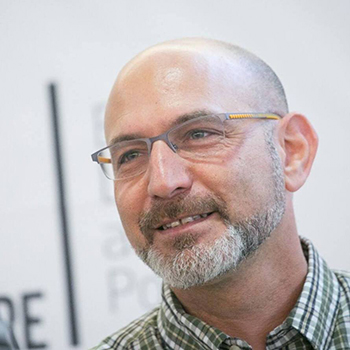Meet Tomer Broude (SJD 2004), Dean

International Governance in the World Trade Organization: Judicial Boundaries and Political Capitulation (Thesis)
Graduate supervisor: University Professor Emeritus Michael J. Trebilcock
Government Appointments: On the World Trade Organization’s (WTO’s) indicative list of dispute settlement panellists, the approved list of Israeli arbitrators under the Israel-MERCOSUR Free Trade Agreement and Chapter 10 of the Canada-U.S.-Mexico Agreement. Member of Israel’s Advisory Committee on Trade Remedies
Tomer Broude (SJD 2004) is Dean of the Faculty of Law at the Hebrew University of Jerusalem and the Bessie and Michael Greenblatt, Q.C., Chair in Public and International Law at the Faculty and the Department of International Relations. He earned a BA in international Relations and an LLB at Hebrew University and worked in commercial law in Israel for five years before returning to graduate school for his SJD.
He has had a keen interest in international law and dispute resolution for more than 30 years, closely following the establishment of the World Trade Organization, the development of the European Union and the NAFTA negotiations. He also had a longstanding interest in academia, originally entering the University Faculty of Law to earn an LLM degree, a plan he quickly altered to pursue an SJD under the guidance of Michael J. Trebilcock, now University Professor Emeritus.
As a mentor, Trebilcock had a strong influence on Broude’s career and academic philosophy.
“He influenced the intellectual breadth of my work and my academic curiosity,” says Broude. “I also walk in his footsteps in terms of mentoring; I have mentored many graduate students here and abroad. Part of my academic mission is to influence and empower young scholars."
Although his decanal responsibilities are myriad, Broude maintains his research interests, which began with international economic law and moved into quantitative, text-based research and behavioural law. He has helped develop experimental research in the latter discipline. One of his current projects is considering frontline negotiations and decision-making in international law.
“We must understand that international law is not conducted by states, but by people who are subject to cognitive biases that influence their decision-making,” Broude says.
He is also currently using natural language processors to undertake a quantitative text analysis to look for trends among 180,000 United Nations human rights bodies’ decisions.
“My research, like my mentors’, has developed over time,” he says.
Broude retains a strong connection to the U of T Faculty of Law. He says smilingly that “Israeli PhDs are an export sector. Many of our students at Hebrew University do SJDs and LLMs at U of T.” He and a few of his legal colleagues earned SJDs from the U of T Faculty of Law – about 10 per cent – and one of the faculty members taught at U of T this past academic term.
“Hebrew University and the U of T have a strategic partnership and I know Dean Brunée because we both work in international law,” Broude says. “One of my dreams is to establish a joint SJD program between our universities.”